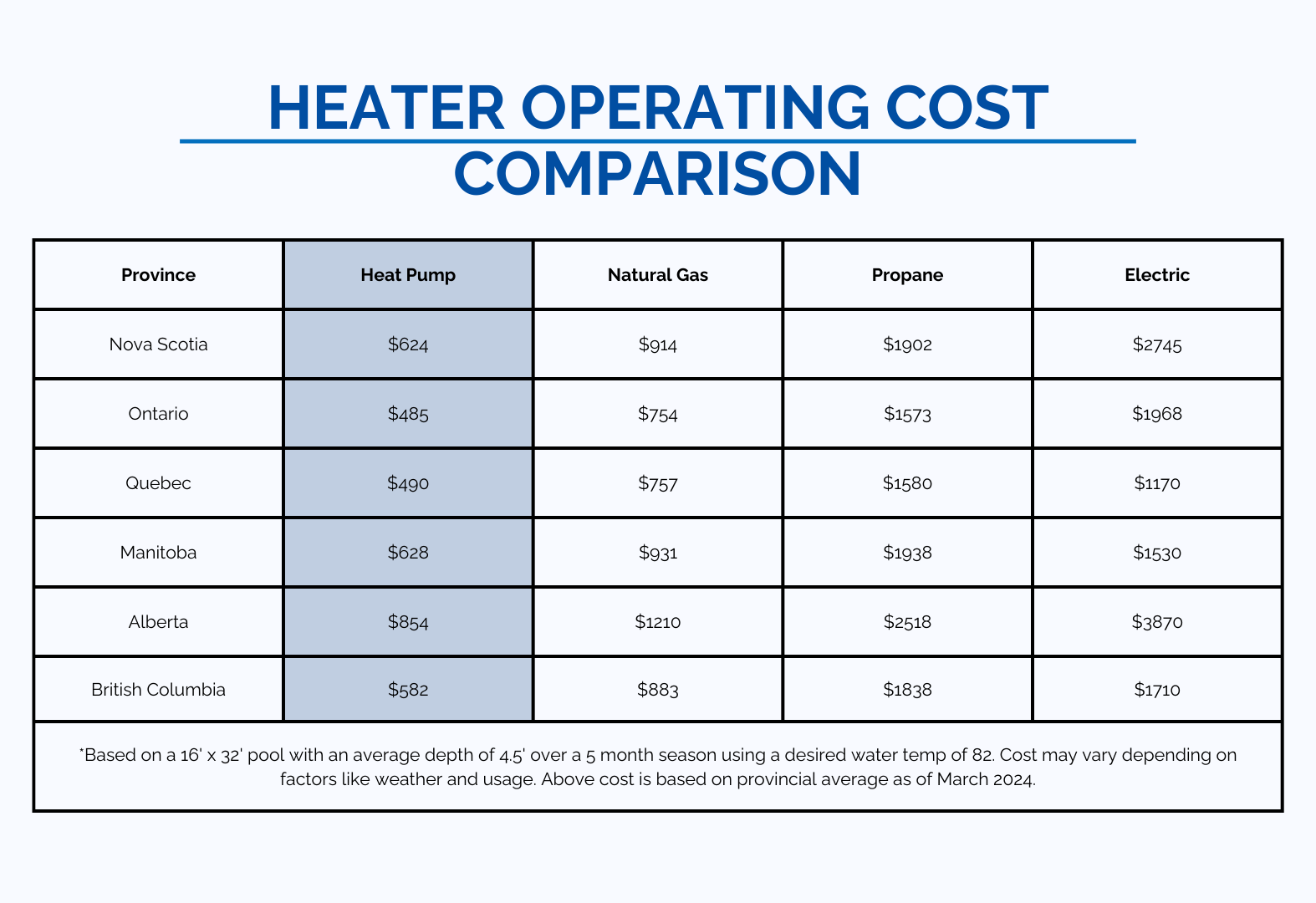Pool Heating Options Explained
When considering which pool heater to purchase, it’s crucial to understand the unique advantages and disadvantages of each type. Factors such as heating speed, energy efficiency, operating costs, climate, and installation should influence your decision. Here's an overview of the four main types of pool heaters:
Heat Pumps
The electric heat pump system works by absorbing heat from the air and transferring it to the pool water. This systems uses relatively low amounts of electricity and is efficient for all weather conditions. It is often referred to as a “reverse air conditioner”.
Heat pumps for pools typically cost more to buy initially, but their decreased energy use means they use far less gas or electricity to power a pool over time. This results in savings on energy bills and makes the pumps an efficient choice for homeowner where natural gas/propane is not available or expensive to install. Heat pumps will work more efficiently when the outdoor air temperature gets above 50 degrees Fahrenheit or 10 degrees Celsius.
Pros: Low running costs, Energy efficient
Cons: Higher upfront costs, not effective below 50 degrees/10 Celsius
Browse All Heat Pumps
Gas or Propane Heaters
Pool heaters circulate water and use heating coils to raise the temperature by burning gas, typically propane or natural gas. This makes them a good choice for users who live in areas where the temperature may not remain above freezing and also works well for those who only heat their pools during certain times of the year.
Gas pool heating systems are mostly used for residential pools and offer a quickest heating solution for homeowners. Gas heaters can be used to complement solar heaters during colder months.
Pros: Lower upfront cost, heats water quickly, works at any temperature
Cons: Higher running costs
Browse All Natural Gas Heaters
Browse All Propane Heaters
Solar Heaters
Solar pool heaters work through solar systems that are installed on the roof or ground and transfer heat from the collector to the water. Buyers have to incur the initial costs of buying the collector, installing the system on the roof and connecting it to the pool. The collector should normally be 80 percent of the surface area of the pool, and gradual collector increments can enhance the effectiveness of the heating system. The availability of the sun determines the effectiveness of this pool heating method. In the most ideal applications with south/southwest facing exposure you can have as little as little as 30 percent of the surface area. Adding on and repairing solar collectors is relatively easy, and once you pay for the initial, one-time cost of the solar heater, panels and tubing you can essentially heat your pool for free for the rest of your life.
If you have a solar heater for your pool then you'll also want to have a solar cover to help you maximize the effectiveness of your heater and reduce the amount of heat that you lose through evaporation. Pool Supplies Canada offers a wide variety of solar covers that will help maximize the effectiveness of any pool heater and save you even more money on pool heating costs.
Pros: Virtually free operational cost, environmentally friendly
Cons: Higher initial cost, takes longer to heat pool
Browse All Solar Heaters
Electric Heaters
The electric element heating method uses an electric element that is connected to the pool and uses electricity to heat the water. This system is not as popular as the other methods of heating. It will work effectively on smaller pools and is the preferred method for heating hot tubs and spas. The most common everyday application would be the process of boiling water in a kettle or coffee maker.
Pros: Low initial cost, easy to install, low repair cost
Cons: Higher running costs, slower to heat
Browse All Electric Heaters
 >
>


 >
>